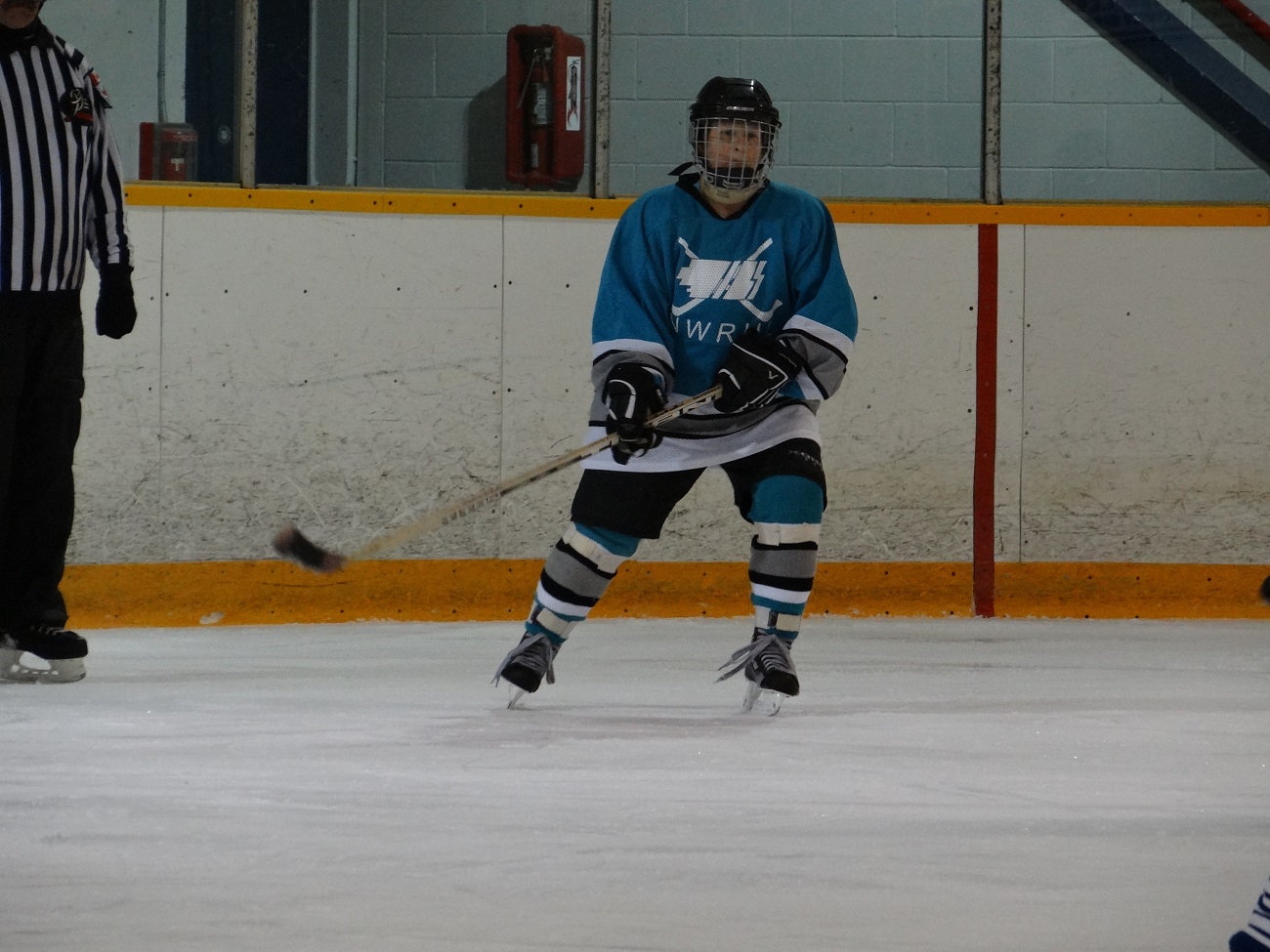Linda Sage was 57 years old and had never played hockey before except for when she started taking her nephews out to play pond hockey. She was sure everyone else would be really good. She only had one pair of skates growing up as a kid, so she wasn’t a strong skater. But, she worked up the courage, and here she is starting her 11th year. This is her story.
"One month after the first season started, I was diagnosed with Stage 2 breast cancer; followed by surgery in December, then chemo and radiation. I thought that was the end of hockey for me, just one month into the season. I watched a few games from the stands, then informed my husband that as soon as the drainage tube was removed at the end of December and the incision healed, I was going to start playing again. I hated watching from the sidelines; I wanted to be on the ice. He was worried, but supportive.
That first game back, I was given a white shirt and the other team was told about the surgery and asked not to be too rough around me for that one game. I started chemo the end of January and played the rest of the season while undergoing chemo. Didn’t ask my oncologist as I was sure he would say no. I was told when I got sick to keep active; I figured playing hockey every week was keeping pretty active and was therapeutic; keeping my mind off my illness. Although, it was hard and painful getting the helmet on and off a totally bald head. But, I finally had a chance to play hockey and wasn’t about to give it up.
So here I am 10 years later, still enjoying this wonderful Canadian game, just like a little kid. I am enjoying every minute of it. So is my husband who hasn’t missed watching a single game. He both praises and criticizes my play."
- Everyone hears about how physically draining chemotherapy can be; how did you find the energy to play hockey throughout your treatment?
"It was tough facing a breast cancer diagnosis and keeping my spirits up, not knowing what the future held, but I had the support of my husband (who was a rock) and also the love and encouragement of my family, friends and co-workers. My younger brother told me cancer picked the wrong person to have a fight with. My surgeon told me to stay positive and take it one day at a time, which I did. I was also told to keep active and walk every day which I did, except for two days where I was really weak. Despite the fear and worries during surgery, chemo and radiation, I tried to stay focused on getting better and returning to the ice and a normal life. I hated being on the sidelines; as soon as my drainage tube was taken out, I told my husband I was returning to play.
My chemo was Thursday and it did drain you; side effects kicked in Saturday and continued Sunday, Monday and Tuesday. By Wednesday, which was when our games are played, I felt good enough to play. I felt energized just being back on the ice. On Sunday afternoons, my husband would take one look at me and send me off to the bedroom to rest up. I think that the fact that I developed an increased appetite during chemo, possibly from all the walking, also helped my energy level."
- What is it about hockey that kept you coming back, even when you may not have been in the physical shape to do so?
"The diagnosis was made one month after I started playing hockey. I thought this was the end of my dreams to play. I couldn’t let this happen. My love of the game and my sheer determination not to let anything interfere with my dreams to play, kept me coming back. I felt each game I played would help in getting me back in shape.The speed, the skating, passing and the thrill of making a good play to keep an opponent from scoring kept me coming back. Trying to improve your game every week, no matter your physical condition or age. My teammates also encouraged me."
- What do you have to say to young girls that might not think they’re good enough for the sport, or can’t play with the boys, or are scared of the physical aspect of the game?
"I would tell these girls to believe in themselves and go for it. If they don’t try, they will never know what they could have accomplished. They have so many opportunities in sports (especially hockey) that were not available to girls years ago. I wish I had that opportunity when I was a kid. If you have a chance to play with the boys, do it. Up until a certain age, size and strength doesn’t matter among boys and girls. They will know when it is time to switch to a girl’s team. Don’t be afraid of the physical aspect of the game. As they learn the game and become better and faster, they will gain more confidence in themselves and won’t even think about the physical aspect and even come to enjoy it."
- How long do you think you’ll keep playing hockey for?
"How long will I keep playing? For as long as I can. Not even thinking about giving it up yet. I also try to play pick-up hockey once a week during the winter. I’m 69 and playing competitive recreational hockey with women all younger than me and having the time of my life; a lot of them in their early 20’s and 30’s. I don’t focus on the physical aspect or age difference; just go out, try to do my best and improve with each game and have fun. The little kid inside me keeps me going. I also do dragonboat racing with a Breast Cancer Survivor Crew who are going to Florence, Italy in July 2018 to compete against teams from all over the world in the World Breast Cancer Survivor Races."


